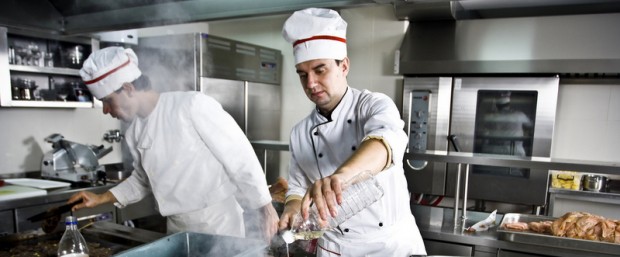Thornaby’s Anson Farm pub found itself at the centre of a food poisoning outbreak when more than 40 customers tested positive for salmonella.
The popular new eatery holds a five-star hygiene rating, proving things can go wrong even in the best-kept kitchens.
The Anson Farm outbreak is one of several to hit the headlines in recent years. Around 500 diners at celebrity chef Heston Blumenthal’s Fat Duck restaurant in Berkshire were struck down by the norovirus after eating contaminated shellfish in 2009.
And 300 passengers aboard P&O’s luxury cruise ship Oriana suffered severe illness when food poisoning swept through the boat in 2012.
So what should you do if you become ill and suspect a bought meal is to blame? Anthony McCarthy, a personal injury claims specialist and a Director at Macks Solicitors in Middlesbrough, has this advice…
1. Seek medical attention as soon as possible to get a proper diagnosis.
In most cases the food that causes the poisoning is contaminated by bacteria such as salmonella or Escherichia coli (E. coli), or a virus, such as the norovirus. Your GP may decide to send a sample for analysis.
“It’s vital to determine exactly what the illness is,” says Anthony. “People often don’t realise that food poisoning can have a long-term effect. It’s not just the diarrhoea, vomiting and nausea. I had a client who developed Irritable Bowel Syndrome as a result of salmonella he contracted on holiday in Turkey.”
Food poisoning symptoms can include feeling sick, vomiting, diarrhea, which may contain blood or mucus, stomach cramps and stomach pain, lack of energy, weakness, loss of appetite and fever.
2. Contact the establishment concerned to inform them about the problem.
“Let them know what’s happened and that you intend to make a claim,” says Anthony.
3. Inform your local environmental heath department. Your doctor may do this once a diagnosis is confirmed.
“Local authorities take food poisoning claims very seriously and their evidential assistance can be very useful in pinpointing a particular location,” says Anthony.
4. Make a detailed diary of everything you’ve eaten in the previous 48 hours.
“You must be able to prove the source of the contaminated food. If someone has been on all-inclusive holiday, it’s unlikely they would have been poisoned anywhere else but the hotel,” says Anthony.
“In other situations it can be difficult to prove, unless, as in the Anson Farm case, a large number of people have been affected.”
5. Contact others you know who ate at the same place to see if anyone else became ill.
Anthony says: “One of the main defences is, ‘How can you prove you got ill from something you ate here?’ The best way to prove is by finding others who have suffered after eating the same food.”
6. Take expert legal advice!
Successful claimants can expect between £500 and £2,000 for relatively mild cases, with up to £30,000 being paid out where permanent disability is suffered.
“You don’t want to be bought off with a low settlement, because the illness can have a permanent affect on your dietary system,” says Anthony, who has acted for a number of food poisoning victims on a no win, no fee basis.
“Responsible establishments will be very keen to resolve the claim. The negative publicity can have a devastating impact on a business. Anson Farm had only recently opened up.
“With social media and sites such as Trip Advisor, these stories spread rapidly. Bigger companies will be desperate to mitigate the damage to their reputations.
“Anson Farm carried out a deep clean and said they’d sorted their procedures. They appear to have managed a difficult situation reasonably well.”


